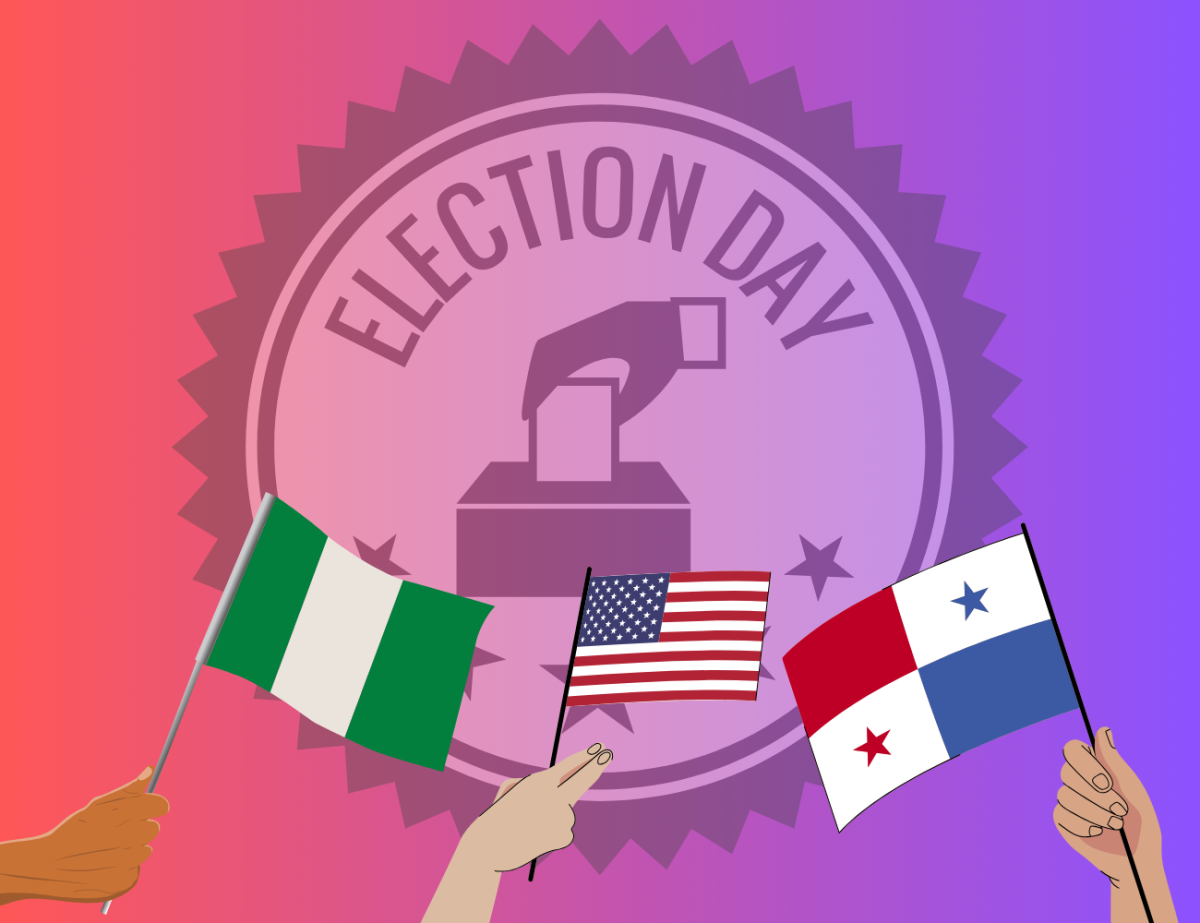As the presidential election approaches, people are mainly surrounded by the Republican and Democratic parties’ campaigns, but learning about the views of those outside the election can also be informative and interesting.
One unique perspective on the upcoming election is that of international students.
While in the United States, international students notice the differences in how the United States and their home country operate.
One of these noticeable differences is how elections work in different countries.
Yoel Alvarez Santos, senior psychology major from Panama, said the elections are longer in the United States than in Panama.
“In Panama, the campaigns last around three months, and on Election Day, it is illegal to display any kind of promotion in your house supporting a specific political party,” Alvarez Santos said.
Oreoluwa Lemboye, junior nursing major from Nigeria, said the elections in the United States and Nigeria differ in voter turnout and systems.
“Voter turnout in the United States varies greatly depending on the election type and population, whereas turnout in Nigeria is frequently lower due to disenfranchisement and dissatisfaction with the electoral system,” Lemboye said.
Lemboye said the voting system in the United States is distributed, with each state conducting its own elections. Additionally, U.S. voter registration is frequently available online, and both in-person and mail-in voting options exist.
“In Nigeria, the Independent National Electoral Commission (INEC) controls a centralized electoral process that mostly relies on in-person voting but is increasingly adopting computerized voting equipment,” Lemboye said. “Both countries suffer issues with voter access and trust, reflecting their diverse political contexts.”
Alvarez Santos and Lemboye both said U.S. elections are competitive and divisive.
“The U.S. elections are so competitive that even the teenagers are involved or included in political debates,” Lemboye said.
Alvarez Santos said U.S. elections are “a really big deal that divides the whole country.” He thinks the reason for this division is that there are two main presidential candidates in the United States.
“In Panama, we have more than four candidates running for the presidency,” Alvarez Santos said.
Fernando Jaen Palacios, sophomore biology major from Panama, said U.S. elections feel more “restricted.”
“The U.S. elections are different from the one in my home country in that in Panama, we have several candidates participating in the elections,” he said. “I believe that is something positive since it gives the population a wider range of options to think about which candidate is the most qualified to be in the position. In the U.S., there are just two candidates from two different political parties competing for the position. I believe that the fact you have to choose one of the two options is very restricted, and it makes the population segregate into two sides.”
Lemboye said U.S. elections are intensely scrutinized, while in Nigeria, “tribal and ethnic affiliations can have a considerable impact on political dynamics.”
Alvarez Santos said U.S. elections feel like potentially impactful events that “can move the country in a different direction.”
“In Panama, it is also important, but the general perception is that, in reality, everything is going to be the same,” Alvarez Santos said.
Jaen Palacios said U.S. elections affect international students because they are a part of the U.S. population, even though most of them cannot vote.
“In my perspective, international students are practically part of the U.S. population while we study here in the US,” he said. “That is to say that any major change that affects the U.S. population, either positive or negative, would affect international students too. I believe that the expectations that U.S. citizens have over the winning candidate in terms of safety, education, inclusivity, opportunities and growth are the same expectations international students would have since, during the time we study here in the U.S., we would benefit by those changes too.”
Alvarez Santos said the election can affect international students positively or negatively, but he values a candidate’s character more than their policies.
“The president has a lot of influence on the thinking and perception of the people,” he said. “For that reason, as an international student, I don’t really care about the plan and the changes they want to make because they do not really affect me. Instead, I see the values and cultural competence of the candidates. For me, it is important that the winner of this election displays high levels of cultural sensitivity and competence so that it can be reflected in the people, resulting in a more diverse and connected community.”




